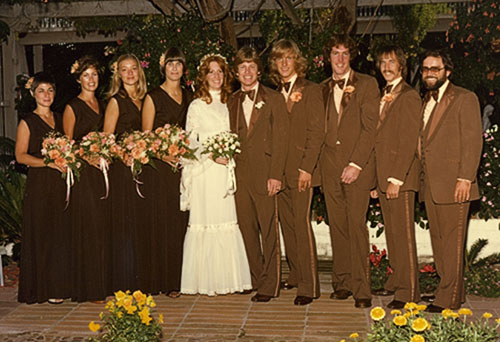I moved to upstate New York a few weeks ago to begin a doctoral program at Cornell University. So I find myself living in the Finger Lakes, starting over again at 25. I’ve made a couple of large moves before—one across the continent to go to university, the other back to Portland to change careers—both of which have taught me how to start over.
Growing up without benchmarks

I moved to upstate New York a few weeks ago to begin a doctoral program at Cornell University. So I find myself living in the Finger Lakes, starting over again at 25. I’ve made a couple of large moves before—one across the continent to go to university, the other back to Portland to change careers—both of which have taught me how to start over.
Somehow, though, this move seems different. My mother helped me drive a 14-foot U-Haul truck across the country, and two nights after we arrived we rewarded ourselves by finding tickets to the Bob Dylan concert at Cornell. I’d never been to a concert as an adult with my mother, and as we watched Dylan play I found myself thinking that my life at 25 looks so different than how my mother’s looked at this age.
I was entering yet another phase wherein my life would not resemble that of a “traditional adult”; but in past generations, 25 meant growing up was long over.
As 20-somethings in the 1970s, my parents were married homeowners, training for jobs, learning to be contributing members of their community and planning for a family. If we assume that these are the components that society recognizes as hallmarks of “adulthood,” then I know almost no one my age these days who is an “adult.”
Part of this may be because a college education no longer provides the same opportunities it did a few decades ago and, because of that, finding a well-paying job is more difficult and paying bills is a challenge. Changing gender roles undoubtedly contributed to this change as well.
Recently, a piece on NPR’s All Things Considered showed that single women are the largest demographic of home-buyers after married couples. Comprising between 16 and 22 percent of the market, single women buy homes at almost twice the rate of single men. This would have been unheard of a few decades ago, and is significant because it demonstrates a different type of adulthood.
In my parents’ generation, and certainly until recently, getting married was a major marker of the passage into adulthood. For so many of us who aren’t married yet or never will be, the definition no longer applies. In past generations, marriage was socially necessary, whereas now the necessity is moot.
The ability to pay your own bills could also be considered a marker of the passage into adulthood, but we now live in a time when two out of five parents pay their adult (18–35) child’s cell phone bills. If we look at home ownership, the 2010 Census found that less than 40 percent of people under 35 own their own homes, while the American Federation of Labor and the Congress of Industrial
Organization reported that more than one-third of workers were still living at home with their parents.
For many, working a full-time job that may be considered a “career” means feeling like an adult—but for many who have chosen academia, myself included, that transition into adulthood was not a defining moment. It would appear that the traditional markers no longer apply as indicators for
our generation.
Being from a town that’s now known across the U.S. as the place where “young people go to retire,” it goes beyond satire to show that being a 20- or 30-something no longer means what it used to mean. Prescribing to a constructed social norm of what it means to be an adult may not apply anymore, because our choices of what adulthood can look like are endless.
My choice to stay single, travel and continue with my education ad infinitum is what defines my adulthood, and it may look completely different for someone else my age.
The benchmarks that traditionally meant we were done growing up have been abolished as such, and exist only if we choose to partake.
Sitting and listening to Bob Dylan sings songs from his new album, almost none of which were familiar to my mother or me, may have highlighted the change in generational norms within my own family—but it also brought about a sense a freedom.
If Dylan can play only new songs that hardly anyone recognizes and still sell out every venue, then there’s clearly no harm in doing away with an old set of standards.
I am an adult, just not one that is easily recognized as such by previous generations.




